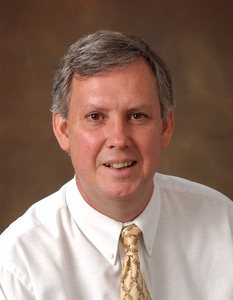
Featured Session
International Conference 2017
Informal Language Acquisition and Classroom Teaching: Complementary, Not Competitive, Approaches
.
In many countries around the world, students are using digital media such as movies, television, video games, and social networking, as well as contact with other speakers through tourism or study abroad, as critical parts of their English acquisition process, in addition to formal lessons in school or after-school learning centers. What are the strengths and weaknesses of these different resources for learning English, and how might a savvy teacher of English within a Korean context incorporate some of these resources into her or his teaching? In this presentation, I will offer examples of how students in one country are learning from digital media and live interaction and then suggest three models for how classroom teachers can incorporate similar activities into their curriculum, before opening the floor to discussion and feedback.
_______________
Invited Second Session (Workshop; with Ju Seong Lee)
New Technologies (and New Uses for Old Technologies) of English Education
.
Do you want to hone your students’ four skills of English using high- and low-tech devices? Do you want to break down your classroom walls and put your students in an authentic, multicultural environment? This workshop will introduce three pedagogical ideas: WebQuests; Online Roundtables; and a text-to-voice program, Natural Reader. In WebQuests, you will learn how to develop a WebQuest activity using various old and new technologies (http://webquestaboutwebquests.weebly.com). In Online Roundtables, you will learn to create an environment where your students interact synchronously with diverse English users using Skype multi-person video calls (http://eslweb.wixsite.com/esol-roundtable). Natural Reader is a downloadable product that will “read” aloud any text that is copied into it (https://www.naturalreaders.com/). By the end of this workshop, attendees will understand how these activities work and be able to create them for their own classrooms.
_______________
Biographical Sketches
.
Mark Dressman is a professor in the Department of Curriculum and Instruction at the University of Illinois at Urbana-Champaign, where he teaches courses in secondary English education, the development of digital curriculum, and research methods. He is a specialist in language education for speakers of English in first, second, and multilingual language contexts, and holds graduate degrees from Teachers College, Columbia University; and The University of Texas at Austin. His current research focuses on multimodality and the use of informal digital technologies such as movies, television, and the Internet in language learning. Dr. Dressman was a recent Fulbright Senior Scholar in Morocco and is a former editor of Research in the Teaching of English. He is the author of four books and many journal articles and book chapters on English education, technology, curriculum, and qualitative research methods. This is his second visit to Korea.
Ju Seong Lee is a PhD candidate at the University of Illinois at Urbana-Champaign. His research interests include computer-assisted language learning (CALL) – particularly, videoconferencing and informal digital learning of English, and English as an international language (EIL).
_______________
Resources on the Web: Mark Dressman
.
Introductory Video: Meet Dr. Dressman (at bottom of this page)
News Article: Students, Teachers Need To Be Transculturally Literate, Expert Says
https://www.sciencedaily.com/releases/2009/09/090924123312.htm
University Faculty Page
https://education.illinois.edu/faculty/mdressma
Publications List
http://www.slate.illinois.edu/people/mdressma
Website: KOTESOL 2017 Presentation Materials (coming soon)
http://idleideas.weebly.com/
_______________
Return to the list of Major Speakers at the Korea TESOL–PAC 2017 International Conference.
_______________


